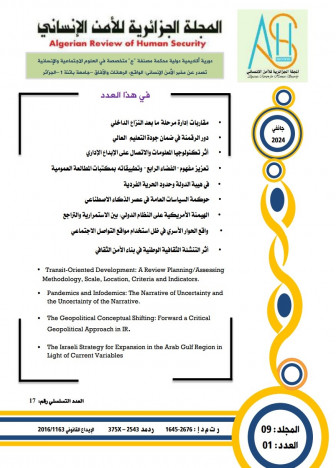Approaches to managing the internal post-conflictphase
DOI:
https://doi.org/10.59791/arhs.v9i1.3775Keywords:
Approaches, Internal Conflict, Post-Conflict, Transitions Justice, Sustainable DevelopmentAbstract
The post-conflict phase is extremely important, given the repercussions of the conflict at regional and international level and its continuing incentives at domestic level. Thus, post-conflict countries and international organizations seek to implement appropriate mechanisms to consolidate peace and prevent the recurrence of conflict in other regions. These approaches can be seen as strategies that guide decision-makers, and they are influenced by societal characteristics of each country, the nature of the political system, its resources and capacities, and the nature of the conflict. Despite the disparities, post-conflict approaches share the purpose of preserving and consolidating peace in order to ensure the well-being of society and the survival of strong state institutions. This study aims to highlight the basis of each approach for addressing the structural imbalances and threats that could hinder the process of sustainable peace. We have adopted a descriptive approach to explain the causes of conflict and its impact on society and the state. The study concludes that the most appropriate approach to post-conflict management is shaped by specific societal characteristics of each country, the nature of the political system and its resources and capacities.





